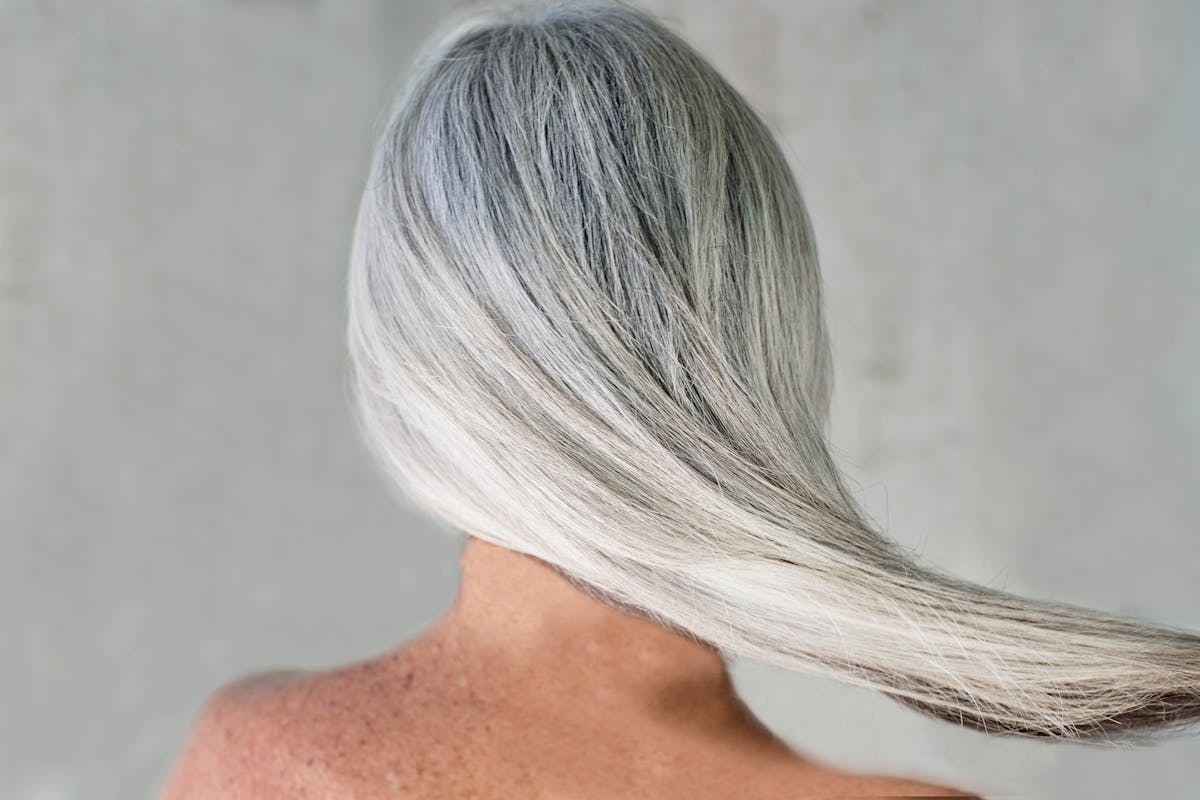…But menopause does often result in thinning hair for many women due to changing hormone levels, meaning menopause and hair loss often happen simultaneously. Hair thinning can occur in perimenopause too – the four to ten-year period before the actual menopause starts – and that can happen as early as in your 30s.
Hormones are mostly blamed for menopausal-related hair loss, but there are many contributing factors, including genetics. Menopause itself won’t lead to baldness, but if you are genetically pre-disposed you could be more at risk for thinning hair during this time. There is also the phenomenon of a negative cycle, when one cause may result in another. For instance, if you worry about menopause and hair loss, your stress levels increase – and stress is a major cause of hair loss! Understand your body, nourish your hair from the inside out, and practice self-care so you have a better chance of keeping your thick, healthy flow of locks.
